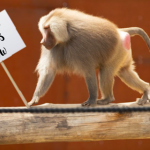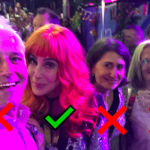The first Mardi Gras took place in the middle of winter in 1978, with a couple hundred people protesting and partying down Oxford Street. When they reached the end of the march, the police blocked off the roads so no one could leave and started violently arresting people. The crowd fought back and tried to pull the arrested out of the paddy wagons. People were beaten and kicked and dragged.
53 people were arrested. Some were attacked brutally by the police. The next morning, the Sydney Morning Herald published the names, addresses, and jobs of the people who got arrested. Many of them lost their jobs, got kicked out of their homes, and lost family. Some of them committed suicide.
Over fifty years later, Mardi Gras is unrecognisable. It’s now a two week long party, with dozens of events culminating in the parade on Saturday. With government funding, corporate sponsorship, and floats for major government parties, it couldn’t be further from that first night in winter.
What’s Changed?
my dislike of pinkwashing vs. how charming i find the sheer volume of mardi gras decorations around sydney: FIGHT
— common-or-garden mads 🦆 (@kitsubasa) February 23, 2020
Last week, the running order for the parade was released, and it’s clear that corporations and government agencies take priority over community organisations. Companies like Woolworths and Instagram take the opportunity to get woke points and extra advertising material, offering nothing for LGBTQI+ workers or customers during the rest of the year. The principle sponsor of Mardi Gras, ANZ, recently released their Lovespeech campaign, which many in the queer community found disrespectful and pointless. They have not yet apologised and are still the tenth float in the parade.
Some of the institutions marching in the parade are doing active damage to the LGBTQI+ community. Qantas deports queer refugees, delivering them to their death, despite having an openly gay CEO. The Defence Force represent the imperial and colonial interests of government organisations, clashing with the strong anti-war movement of the queer community. The police have always posed a threat to the queer community, especially for queer people of colour, Indigenous people, trans people, and poor people. And let’s not even get started on the fact that the Liberals have a float.
Fuck the ANZ bank, fuck their pink washing and fuck Mardi Gras’ expansionist bullshit that makes sponsorship from evil shits like banks “necessary”.
— giving up on usernames (@noname_noidea) February 20, 2020
These institutions work against queer people every other day of the year. On the other hand, organisations that are involved in queer communities year round, like QLife, Twenty10 and Wear It Purple, are pushed to the back. Aren’t they the ones we should be celebrating? Why do the police, the ones who systematically attacked and arrested queer people during the first Mardi Gras, get priority?
Party Or Protest?
But when I think about what Mardi Gras meant to me as a child, a teenager, a young adult, I feel a real sense of loss. How did we give away so much? How did we let so many corporations, government departments, soulless entities take over our expression of community and self?
— Maeve Marsden (@maevemarsden) February 25, 2020
I’m not the only one who feels like this. Pride In Protest was founded in an effort to re-radicalise Mardi Gras and bring it back to its grassroots organisation. One of their candidates was elected to the board of directors last year, despite great backlash from many older, more conservative members. But it’s not too late for Mardi Gras to go back to its roots of being a community led event, demanding better treatment of queer people in Australia and worldwide, and celebrating how far we’ve already come.
Even though I’m a lesbian, I won’t be watching the parade and neither will many of the queer people I know. It’s not a form of protest, it just doesn’t feel like it’s for us. And at the end of the day, isn’t it supposed it be?
Image Sources: @SBSPride Twitter




